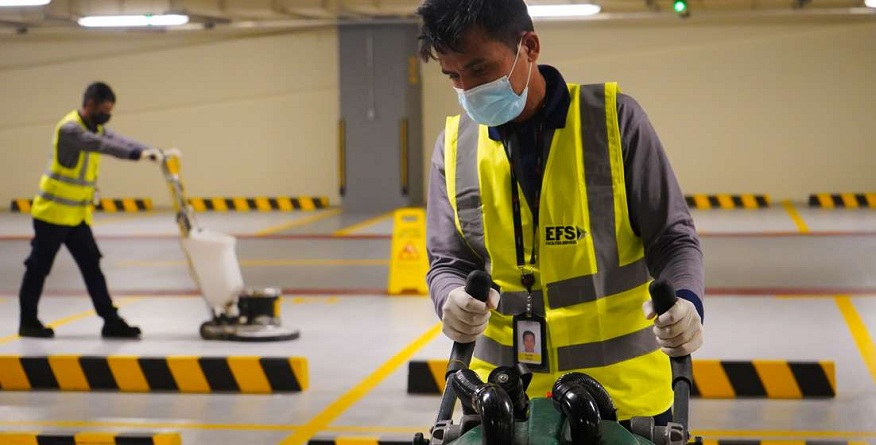5 Benefits of Facility Management Professionals
Facility management is a professional discipline focused on the operations and maintenance of buildings, infrastructure and environments. It involves integrating non-core functions across an organization to improve value and reduce costs. Facility management professionals play a crucial role in streamlining operations, enhancing efficiency and creating optimal workplace experiences.
Here are 5 key benefits of hiring facility management professional:
1. Improved Workplace Efficiency
Facility management professionals are skilled at evaluating how an organization operates on a day-to-day basis. They look closely at workflows, processes and how resources such as people, equipment and space are utilized across departments. Through comprehensive audits and assessments, these professionals can identify inefficiencies that may be hindering productivity. Some common issues include redundant tasks, bottlenecks in operations, lack of coordination between teams and underutilization of resources.
Once these inefficiencies are discovered, facility managers work to streamline operations. They implement process optimization techniques to remove unnecessary steps and automate repetitive tasks. Technology solutions such as new software platforms may be introduced to better facilitate information sharing and remote work. Change management strategies help engage employees and overcome resistance to new protocols.
Support functions that often contribute to inefficiencies, such as procurement, maintenance requests and facility administration, are centralized under the facility manager’s purview. By consolidating these services, communication and service levels improve dramatically. Purchasing power increases through bulk orders while maintenance response times decrease.
2. Enhanced User Experience
The primary goal of facility management is to optimize the experience of all users within an organization’s buildings and facilities. Facility managers deeply understand how different aspects like workplace design, infrastructure and support services can positively or negatively impact users on a daily basis.
To ensure the best possible experience, facility managers will conduct research such as surveys, focus groups and data analysis to gain insights from users. This helps identify any pain points or issues hindering productivity, collaboration or satisfaction. Some common pain points could be outdated amenities, poor wayfinding systems, inconsistent maintenance or other infrastructure problems.
Armed with this research, facility managers can then work on well-planned solutions to resolve pain points. For example, they may propose upgrades to break room amenities, improving directional signage or implementing a work order system for faster repairs. Their solutions aim to create a seamless, comfortable experience wherever users are within a facility.
3. Strategic Asset Management
Facility management professionals play a crucial role in developing strategic plans to optimize the utilization and longevity of physical assets. Through diligent audits and condition assessments of buildings, infrastructure and equipment, they analyze critical details such as usage patterns, past repair records and future cost projections. This comprehensive evaluation helps identify underperforming assets that may be due for replacement, common maintenance issues plaguing different areas, and potential risks to the property. Armed with these insights, facility managers then create long-term management plans outlining various capital projects, preventative maintenance routines and replacement timelines for equipment. The overarching goal is to extract the highest possible value from existing assets while minimizing downtime and maintenance costs over the years.
These management plans improve budgeting accuracy by anticipating expenditure needs well in advance. They also help boost cost control through efficient allocation of resources and bulk material procurement. Most importantly, strategic asset plans lead to higher returns on property investments. By maintaining assets proactively and replacing them at optimal times, the lifespan and performance of buildings and equipment is maximized. This enhances long-term usability of facilities while preserving their market worth. Overall, the strategic asset oversight of facility management professionals results in improved budget forecasting, tighter cost management and greater returns for property owners in the long run.
4. Regulatory Compliance
Laws and regulations surrounding workplace safety, environmental standards, and accessibility are constantly changing across jurisdictions. Remaining compliant is crucial to avoid penalties and legal risks. As compliance standards evolve, it can be difficult for organizations to consistently adhere to all applicable protocols for their industry and location. This is where facility managers provide significant value. Facility managers make it their responsibility to track regulatory changes in areas concerning properties and operations.
They regularly audit facilities to identify any gaps or areas of non-conformity with current legislation. When issues are detected, swift remedial plans are developed and implemented to resolve problems before deadlines. An important part of the facility manager’s role is staff training. They provide ongoing education on all compliance policies and procedures that workers must follow. This ensures employees at all levels clearly understand their responsibilities and the organization’s stance on compliance.
5. Cost Reduction
The primary aim of facility management is to optimize costs for organizations. Professionals in this domain have extensive skills in analyzing budgets, consumption trends, and vendor agreements meticulously. They scrutinize spending to identify specific areas where savings can be found. Common areas for potential cost takeouts include energy usage, maintenance expenditures, property sizes leased, and procurement outlays. Facility managers design targeted solutions such as infrastructure upgrades, process re-engineering, outsourcing non-core functions, and contract renegotiations. This helps remove inefficiencies and negotiate more competitive rates from suppliers.
Over the long-term, these cost-cutting initiatives can yield significant financial benefits. Steps like installing energy-efficient equipment or right-sizing real estate footprints trim operating expenses gradually. Switching to outsourced service providers may lower maintenance bills. Re-procuring items jointly as an organization can drive down overall purchase costs. The savings accumulated through such measures are not one-time gains. Rather, they persist and multiply year-on-year. As costs are kept low, the freed-up capital has valuable uses. It can either fund strategic business growth activities. Alternatively, the additional profits are returned to stakeholders such as owners and shareholders. In either case, the organization benefits financially due to the cost oversight of facility management.
Conclusion
The facility management coordinator is a business-critical function that delivers multifaceted benefits when led by qualified professionals. Organizations that outsource this function to capable service providers experience enhanced operational efficiency, improved user satisfaction, strategic asset oversight, regulatory compliance and meaningful cost reductions. Facility managers apply a holistic, solutions-driven approach to integrate non-core functions and maximize value from physical infrastructure investments. Their expertise creates higher productivity, lower risks and greater financial sustainability for all types of property owners and occupants.



